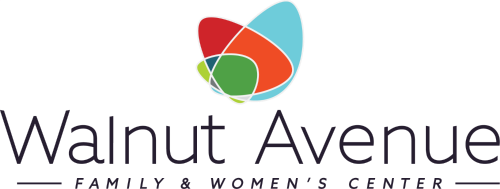
Training Facilitators
Amanda Coto (she/her)
Advocacy & Prevention Coordinator
acoto@wafwc.org
Marjorie Coffey (they/them)
Advocate for Survivors of Domestic Violence
mcoffey@wafwc.org
This page outlines the guidelines and expectations of Walnut Avenue Family & Women’s Center’s biannual training, which certifies an individual to provide direct service in domestic violence through a registered domestic violence agency under California law.
Please visit the main training page for information on how to register.
On this page:
What is advocacy? • About the Training • Outline & Facilitation
What is advocacy?
Advocacy is the act or process of supporting a cause. This can be for a principle, such as racial justice or environmental preservation, or for an individual, such as helping someone find justice for an individual wrong which they experienced.
In the context of Walnut Avenue Family & Women’s Center, an advocate is someone who provides peer emotional support and practical information so that someone experiencing domestic violence can make informed decisions about their own safety within overlapping systems that don’t adequately support survivors. These systems often include law, politics, social services, larger social communities such as counties, and personal social groups like friends and family.
About the Domestic Violence Advocacy Certification Training
You may complete our trainings as one of two categories:
Professional development student (training only, no volunteer service): $250 training fee
Volunteer advocate (training + direct service volunteer experience): free (no training fee)
Eligibility for the Advocacy Training
All people attending the training must:
Be over 18 years of age
Have an email address that they regularly check
Not have received domestic violence services on their own behalf with Walnut Avenue within the last two years (conflict of interest)
Be open to constructive feedback from staff during the course of training
For students who become volunteer advocates, they must also:
Be able to commit to the guidelines outlined in the Code of Conduct
Have a working phone
Meet all the basic eligibility requirements of our volunteer programs (please note that there is no residency requirement for people to attend our training virtually, but to volunteer, a person must spend at least half their time in California and be able to meet once a month in person at our office in Santa Cruz)
Students are not required to have prior personal experience of domestic violence, nor are they required to have any training or experience in peer counseling or related fields.
There are no requirements around gender, sexuality, family and relationship models, race, ethnicity, nation of origin, citizenship status, age (over 18 years old), faith, physical ability, mental health or cognitive processing style, formal education level, prior experience, or any other identity. Walnut Avenue Family & Women’s Center is an equal-opportunity employer and service provider.
Standards of the Certification
The purpose of the certification training is to provide the information, resources, and skills for a person to offer safe, informed, and effective crisis intervention for survivors of domestic violence (DV) primarily through our 24-hour hotline. This certification training conforms to California state standards and the requirements from the California Office of Emergency Services (CalOES) for providing direct service. The full legal text is available here.
Currently, there is no federal DV certification and Walnut Avenue cannot guarantee that DV agencies in other states will recognize California certification. A certified individual must be attached to a registered DV agency (whether as a volunteer or paid staff person) or a qualifying DV program to legally offer services as an advocate as enjoy the legal privileges thereof (EVID 1037.1). As of this writing, there is no California law that sets forth expiration or renewal dates for certification, but many DV agencies prefer training to be within a few years of doing service. Individual agencies may require supplementary training to accommodate recent changes in social services or local differences in resources.
“My schedule is pretty busy. Could I be certified by watching a recording of the training?”
No. The certification is valid regardless of whether the training is in person or virtual as long as there is a “real-time” component that evaluates a student’s progress. This means trainings which are fully recorded, and which do not involve live instruction, do not meet the CalOES standards for certification.
“Is there a final exam?”
No. Student progress is evaluated during the course of the training and through group and personal discussion about the content.
